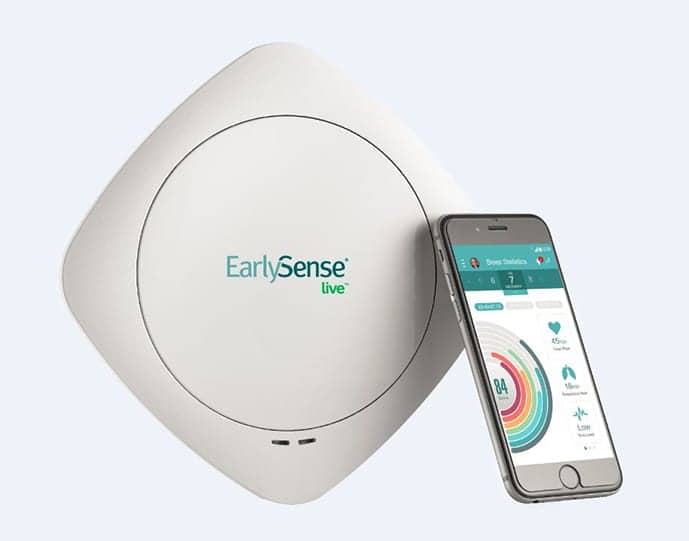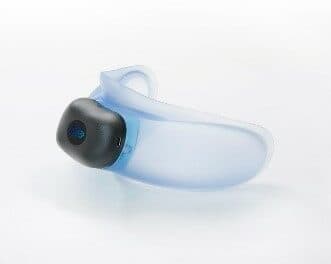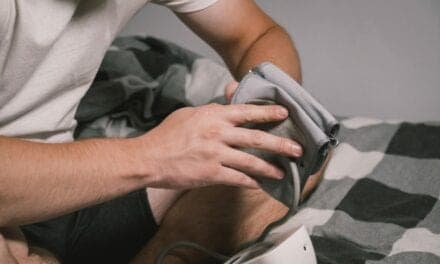Contact-free continuous monitoring solutions maker EarlySense announced research indicating that its EarlySense Live home-based sensor accurately detects sleep apnea and sleep-disordered breathing (SDB) in children, when compared to polysomnography (PSG). The contact-free system showed nearly 90% accuracy compared to the gold standard and calculated the apnea/hypopnea index (AHI with a 0.9 correlation to sleep lab results. The clinical results were presented at SLEEP 2017.
The new research comes on the heels of EarlySense’s receipt of U.S. patent #9,681,838 for a monitoring system that identifies individuals undergoing an apnea episode and for predicting an apnea episode, to enable immediate intervention. It also follows a previous study that evaluated contact-free continuous monitoring for measuring obstructive sleep apnea in adults, published earlier this year in the ATS Journal.
The new study, led by Asher Tal, head (emeritus) and founder of the Pediatric Pulmonary Unit and Sleep Center at Soroka Medical Center, evaluated children that were referred to a sleep study with suspected SDB. The children underwent full overnight PSG in a sleep laboratory, and were simultaneously measured with EarlySense’s piezo-electric (PE) sensor. The PE system measured both sleep/wake and apnea/hypopnea events to enable an accurate AHI estimation. The sleep scoring and AHI detections of the PE contact-free system were compared to PSG based manual scoring of an expert sleep technologist, according to American Academy of Sleep Medicine (AASM) guidelines.
“The results of this study suggest that the tested sensor may be used in the future for at-home screening of children for sleep-disordered breathing for several consecutive nights, in their natural home setting,” says Tal in a release. “Accurately tracking sleep-breathing patterns in children from the comfort of home, without any wires, holds great promise for the future of sleep medicine and eliminates long wait times typically associated with sleep lab appointments. It also allows parents to confer with pediatricians and determine if further sleep lab diagnosis is required.”
Launched in early 2017, EarlySense Live provides users, their families and caregivers with accurate information regarding heart rate, breathing cycles, stress, and sleep indicators. The at-home solution leverages EarlySense’s core medical monitoring technology, which has been implemented globally in hospitals, rehab, and skilled nursing facilities.
“Sleep apnea is a significant health risk that affects millions of people worldwide, and can result in reduced productivity and poor school performance. It is also associated with hypertension and cardiovascular disease if left untreated. Despite this, it remains a severely under-diagnosed condition,” says Zvika Shinar, chief scientist of EarlySense. “This study highlights the clinical accuracy of EarlySense Live and its ability to effectively detect breathing disorders without ever touching the person being monitored. Home-based contact-free monitoring is the new frontier in personal health and we are pleased to provide a solution that helps families facilitate better health choices.”




